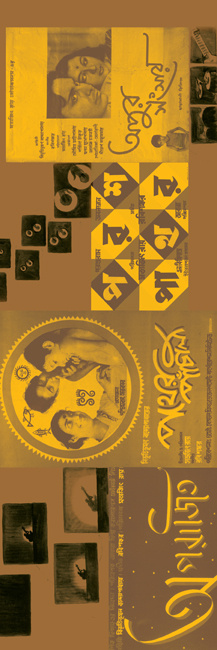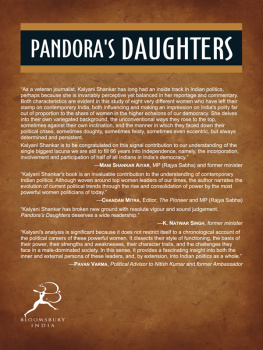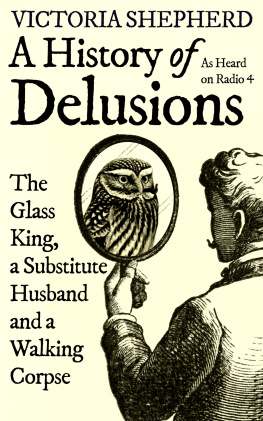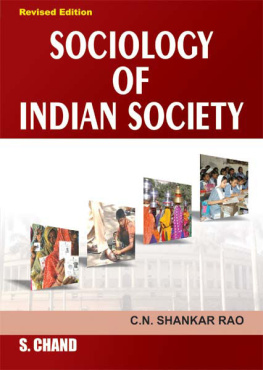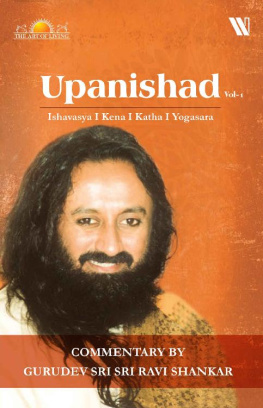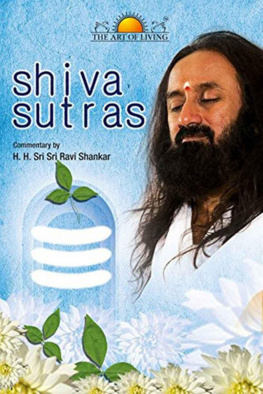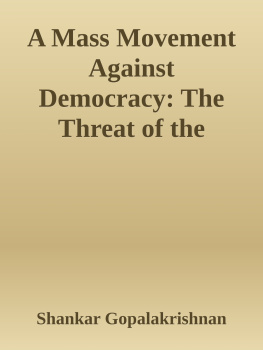Shankar Vedantam - Useful Delusions
Here you can read online Shankar Vedantam - Useful Delusions full text of the book (entire story) in english for free. Download pdf and epub, get meaning, cover and reviews about this ebook. year: 2020, publisher: W. W. Norton & Company, genre: Religion. Description of the work, (preface) as well as reviews are available. Best literature library LitArk.com created for fans of good reading and offers a wide selection of genres:
Romance novel
Science fiction
Adventure
Detective
Science
History
Home and family
Prose
Art
Politics
Computer
Non-fiction
Religion
Business
Children
Humor
Choose a favorite category and find really read worthwhile books. Enjoy immersion in the world of imagination, feel the emotions of the characters or learn something new for yourself, make an fascinating discovery.

- Book:Useful Delusions
- Author:
- Publisher:W. W. Norton & Company
- Genre:
- Year:2020
- Rating:3 / 5
- Favourites:Add to favourites
- Your mark:
- 60
- 1
- 2
- 3
- 4
- 5
Useful Delusions: summary, description and annotation
We offer to read an annotation, description, summary or preface (depends on what the author of the book "Useful Delusions" wrote himself). If you haven't found the necessary information about the book — write in the comments, we will try to find it.
Useful Delusions — read online for free the complete book (whole text) full work
Below is the text of the book, divided by pages. System saving the place of the last page read, allows you to conveniently read the book "Useful Delusions" online for free, without having to search again every time where you left off. Put a bookmark, and you can go to the page where you finished reading at any time.
Font size:
Interval:
Bookmark:
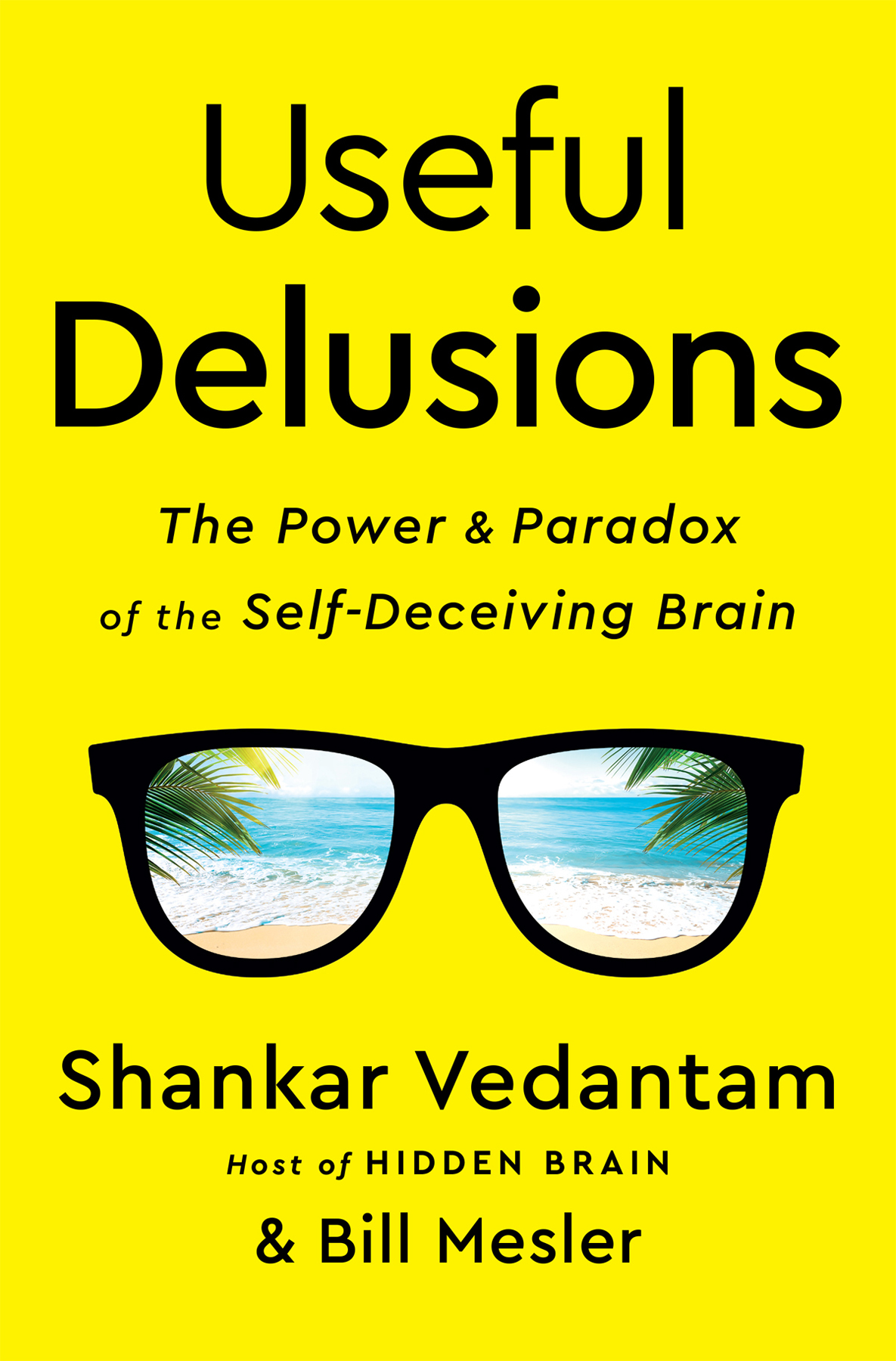
ALSO BY SHANKAR VEDANTAM
The Hidden Brain:
How Our Unconscious Minds Elect Presidents,
Control Markets, Wage Wars, and Save Our Lives
ALSO BY BILL MESLER
A Brief History of Creation:
Science and the Search for the Origin of Life (coauthor)
DELUSIONS

The Power and Paradox
of the Self-Deceiving Brain
Shankar Vedantam
and Bill Mesler

Copyright 2021 by Shankar Vedantam and Bill Mesler
All rights reserved
First Edition
The Poems of Emily Dickinson: Reading Edition, edited by Ralph W. Franklin, Cambridge, Mass.: The Belknap Press of Harvard University Press, Copyright 1998, 1999 by the President and Fellows of Harvard College. Copyright 1951, 1955 by the President and Fellows of Harvard College. Copyright renewed 1979, 1983 by the President and Fellows of Harvard College. Copyright 1914, 1918, 1919, 1924, 1929, 1930, 1932, 1935, 1937, 1942 by Martha Dickinson Bianchi. Copyright 1952, 1957, 1958, 1963, 1965 by Mary L. Hampson.
For information about permission to reproduce selections from this book, write to Permissions, W. W. Norton & Company, Inc., 500 Fifth Avenue, New York, NY 10110
For information about special discounts for bulk purchases, please contact W. W. Norton Special Sales at specialsales@wwnorton.com or 800-233-4830
Jacket design: Pete Garceau
Jssacket images: (glasses) Victor_85 / iStock;
(island) MariuszBlach / iStock
Book design by Ellen Cipriano
Production manager: Anna Oler
The Library of Congress has cataloged the printed edition as follows:
Names: Vedantam, Shankar, author. | Mesler, Bill, author.
Title: Useful delusions : the power and paradox of the self-deceiving brain / Shankar Vedantam and Bill Mesler.
Description: First Edition. | New York : W. W. Norton & Company, 2021. | Includes bibliographical references and index.
Identifiers: LCCN 2020028515 | ISBN 9780393652208 (hardcover) | ISBN 9780393652215 (epub)
Subjects: LCSH: Deception. | Self-deception. | Truthfulness and falsehood. | Delusions.
Classification: LCC BF637.D42 V43 2021 | DDC 153.4dc23
LC record available at https://lccn.loc.gov/2020028515
W. W. Norton & Company, Inc., 500 Fifth Avenue, New York, N.Y. 10110
www.wwnorton.com
W. W. Norton & Company Ltd., 15 Carlisle Street, London W1D 3BS
To my mother, Vatsala, who showed me
that reality bends to willpower
Shankar Vedantam
And to my mother, Chun Yun, a little girl from
Pyongyang, who survived wars and famines,
and willed herself across seas and continents
Bill Mesler
For if people wish to believe a thing, and long for it and depend on it to be true, and feel the better for it, is it cheating to help them to their own belief... Is it not rather a charity, and a human kindness?
MARGARET ATWOOD, ALIAS GRACE
I n the winter of 2011, my wife, my daughter and I set out on a road trip from Washington, DC, to Toronto to visit some close friends. It was a beautiful drive that took us through the lush foothills of the Allegheny Mountain Range, and eventually past Lake Erie and Niagara Falls. But first we had to make a stop just outside of Pittsburgh, where I had an appointment with a felon.
The detour didnt surprise my family too much. We had made the drive before, and had stopped at a maximum security prison so I could interview a man convicted of murder for my book The Hidden Brain. This meeting was merely with a white-collar criminal. His old U.S. Marshallissued WANTED poster noted that he was the founder of a cult-type organization called the Church of Love. It would be more accurate to say he was a con artist who had managed to pull off one of the most bizarre and inventive scams in American history. His name was Donald Lowry.
Lowry first came to my attention some months earlier, as I was reading an obscure academic paper. In passing, the paper mentioned some elements of Lowrys peculiar scheme, which it described, dryly, as a rather inventive direct-mail program. I was intrigued and started to look for more information. Much to my surprise, there was a lot of it. If you are old enough to have read newspapers or watched television news in the late 1980s, you might have heard of the Church of Love. Lowrys case found its way into the New York Times and the Los Angeles Times, several national magazines, and the big four television networks. He was interviewed by Bill OReilly on Inside Edition and by Maury Povich on A Current Affair. His trial was covered by the Australian Broadcasting Corporation and by the magazine Paris Match, the largest newsweekly in France. His scam was the subject of an early and iconic episode of Geraldo.
The story was weird and captivating: A balding, middle-aged writer in a small Midwestern town had assumed the personas of dozens of fictitious women. He had written love letters in their voices to tens of thousands of menthe inventive direct mail program. Each woman had her own unique writing style, vocabulary and backstory. The letters were printed en masse, but they featured numerous personal touches. Lowry used fonts that imitated actual handwriting, and the letters were often printed on paper tinted in delicate pastels. The notes featured girlish expostulations and whimsical digressions. Lots of men who received the love letters wrote back. In the course of weeks, months and sometimes years, they poured out their hearts to their fictitious correspondents. Many fell in love, and believed they had found their soulmates. They sent in hundreds of thousands of dollars to Lowry and his organization in order to keep the love letters coming. Some wrote wills bequeathing their estates to their imagined soulmates. Federal investigators eventually estimated that, by the end, Lowrys scheme had garnered millions of dollars. His business occupied the entirety of one of the most prominent downtown office buildings in Moline, Illinois, and he owned printing presses large enough to publish a medium-sized newspaper. His organization had fifty employees. By the time Lowry was arrested, he owned a fleet of twenty automobiles, including Rolls-Royces and Jaguars. He had a full-time personal mechanic.
Ive always been intrigued by stories about con artists. Like art forgers, these criminals tend to be colorful, and their outlandish tales usually make for interesting journalism. But there was something about this case that struck me as completely unbelievable: When Lowrys scheme was unmasked, and he was brought to trial on charges of mail fraud in 1988, members of his love letter subscription service came to a courthouse in Peoria, Illinoisto defend him. Some testified that the Church of Love had kept them from addiction and lonelinesstwo members said the love letters had saved them from suicide. One man railed against the investigators who were trying to protect victims like himself. The Postal Inspector ruined my life, he said.
What on earth was going on? Once the con was revealed,
Font size:
Interval:
Bookmark:
Similar books «Useful Delusions»
Look at similar books to Useful Delusions. We have selected literature similar in name and meaning in the hope of providing readers with more options to find new, interesting, not yet read works.
Discussion, reviews of the book Useful Delusions and just readers' own opinions. Leave your comments, write what you think about the work, its meaning or the main characters. Specify what exactly you liked and what you didn't like, and why you think so.

